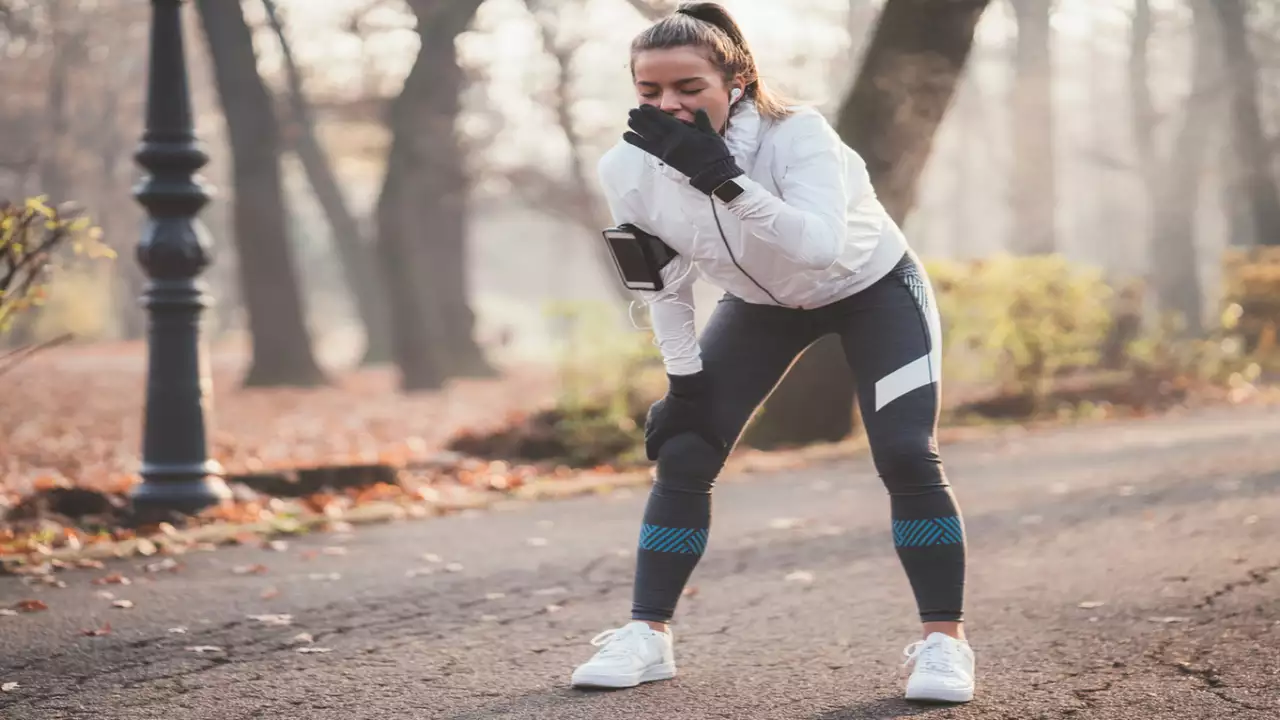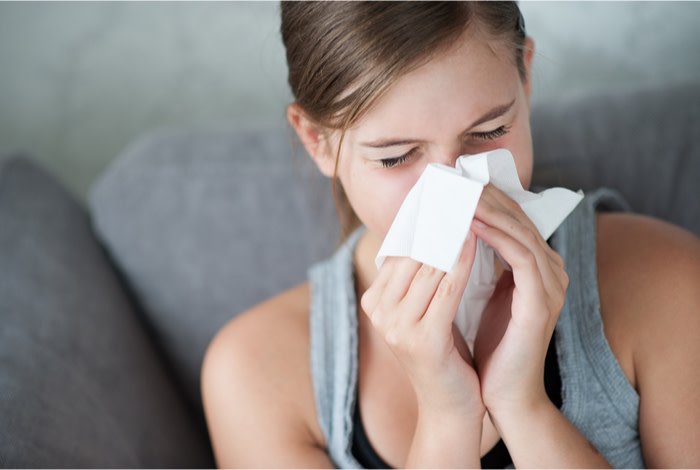Ever noticed your nose running when you’re jogging or working out? It happens to many of us, and it’s called exercise-induced rhinitis. In simple terms, your nose gets all sneezy during exercise. Today, let’s figure out why this happens and what you can do about it. Time to make peace with your runny nose and enjoy your workouts without the hassle!

Contents
Why does my nose run when I exercise?
When you hit the gym or go for a run, you may notice that your nose starts to run. It can be quite bothersome and may leave you wondering why this happens. Well, let’s look into the reasons behind this common occurrence.
1. Increased Breathing Rate and Nasal Passages:
During exercise, your body’s breathing rate increases to supply your muscles with the oxygen they need. In order to accommodate the increased airflow, your nasal passages open up. While this helps provide more oxygen to your body, it also exposes your nose to potential irritants such as dust, pollen, or pollution.

2. Defense Mechanism: Increased Mucus Production:
Our bodies are cleverly designed to protect us from harmful particles in the air. When we exercise, our body produces more mucus to trap any dirt, dust, or germs that we might inhale. This increased mucus production serves as a defense mechanism to keep us healthy. However, it can also lead to a runny nose during exercise.
3. Allergies and Nasal Irritants:
If you suffer from nasal allergies, this can amplify the impact of exercise on your nose. When your nasal passages open up during exercise, the exposure to irritants can trigger an allergic reaction, causing your nose to run even more.
Tips to Prevent a Runny Nose During Exercise
When it comes to preventing a runny nose during exercise, there are a few strategies you can try. By implementing these tips, you can minimize the inconvenience and enjoy your workout without constantly reaching for tissues.
- Stay Hydrated: One of the key factors that can contribute to a runny nose during exercise is dehydration. Make sure to drink enough water before, during, and after your workout. Staying hydrated can help thin out the mucus in your nasal passages and reduce the chances of a runny nose.
- Warm Up Properly: Taking the time to properly warm up before your exercise session can help reduce the likelihood of a runny nose. Start with some light cardiovascular exercises and gradually increase the intensity. This can help acclimate your body to the increased airflow and minimize the chances of nasal irritation.
- Choose Exercise Environments Wisely: If you’re prone to a runny nose during exercise, it may be helpful to choose your exercise environment wisely. Exercising outdoors in areas with high levels of dust, pollen, or pollution can trigger a runny nose. Consider indoor exercise options or select outdoor venues with cleaner air whenever possible.
- Consider Nasal Sprays: If you’re still experiencing a runny nose despite taking precautions, nasal sprays can help alleviate symptoms. Talk to your healthcare professional about over-the-counter or prescription nasal sprays that can help reduce inflammation and control nasal congestion.
- Consult a Healthcare Professional: If your runny nose persists or is accompanied by other concerning symptoms, it’s important to consult a healthcare professional. They can help identify the underlying cause of your runny nose during exercise and provide appropriate medical treatment.
Frequently Asked Questions
Why does my nose run when I do physical work?
Exercise opens up nasal passages and thins mucus, causing a runny nose.
How do I stop my nose from running when I walk?
Consider using decongestants, nasal sprays, or home remedies such as rinsing nasal passages.
What is the best thing to stop your nose from running?
The fastest way to stop a runny nose is to blow it. Applying capsaicin or taking antihistamine tablets may also help.

Hello, I’m Ravindra. Over the years, I’ve immersed myself deeply into the world of fitness and health, transforming both my body and mind. Writing has allowed me to share my journey, insights, and expertise with those just starting out and seasoned fitness enthusiasts alike. Beyond just routines and diets, I believe in inspiring others to adopt a holistic approach to well-being.
